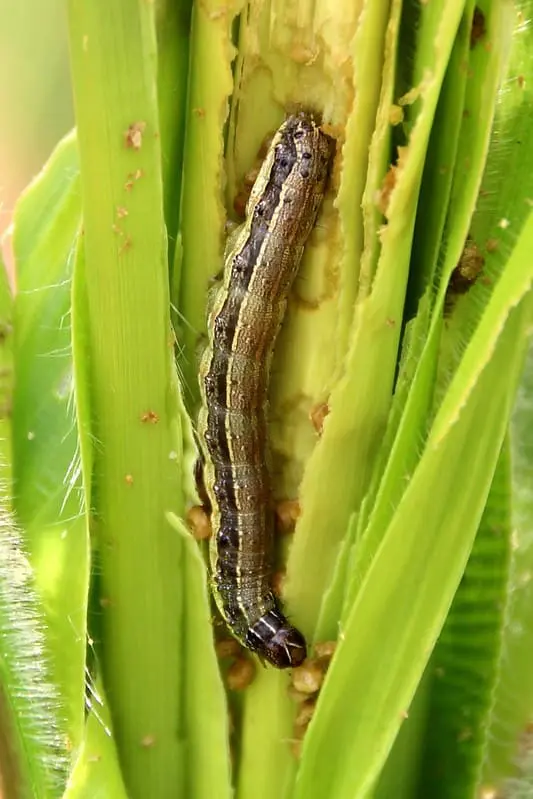True and fall armyworms have been an issue for Kansas crops for the last forty years. This year, these pests have reappeared, with their similar life cycles leading to significant crop damage. Both types are currently at the same larval stage, hatching from eggs in 3-5 days and feeding for about two weeks before pupating for 6-7 days. This cycle lasts about a month.
Fall armyworms mainly target soybeans but can also harm wheat, sorghum, and corn. Once they mature, they typically migrate south for the winter, minimizing their impact. In contrast, true armyworms may remain in Kansas, especially favoring lush wheat.
To manage these pests, crop experts recommend delaying winter wheat planting to limit available food sources. Before applying insecticides, it’s essential to check treatment thresholds and scout for pest size. Proper insecticide application requires mixing it with enough water to effectively reach the pests.













